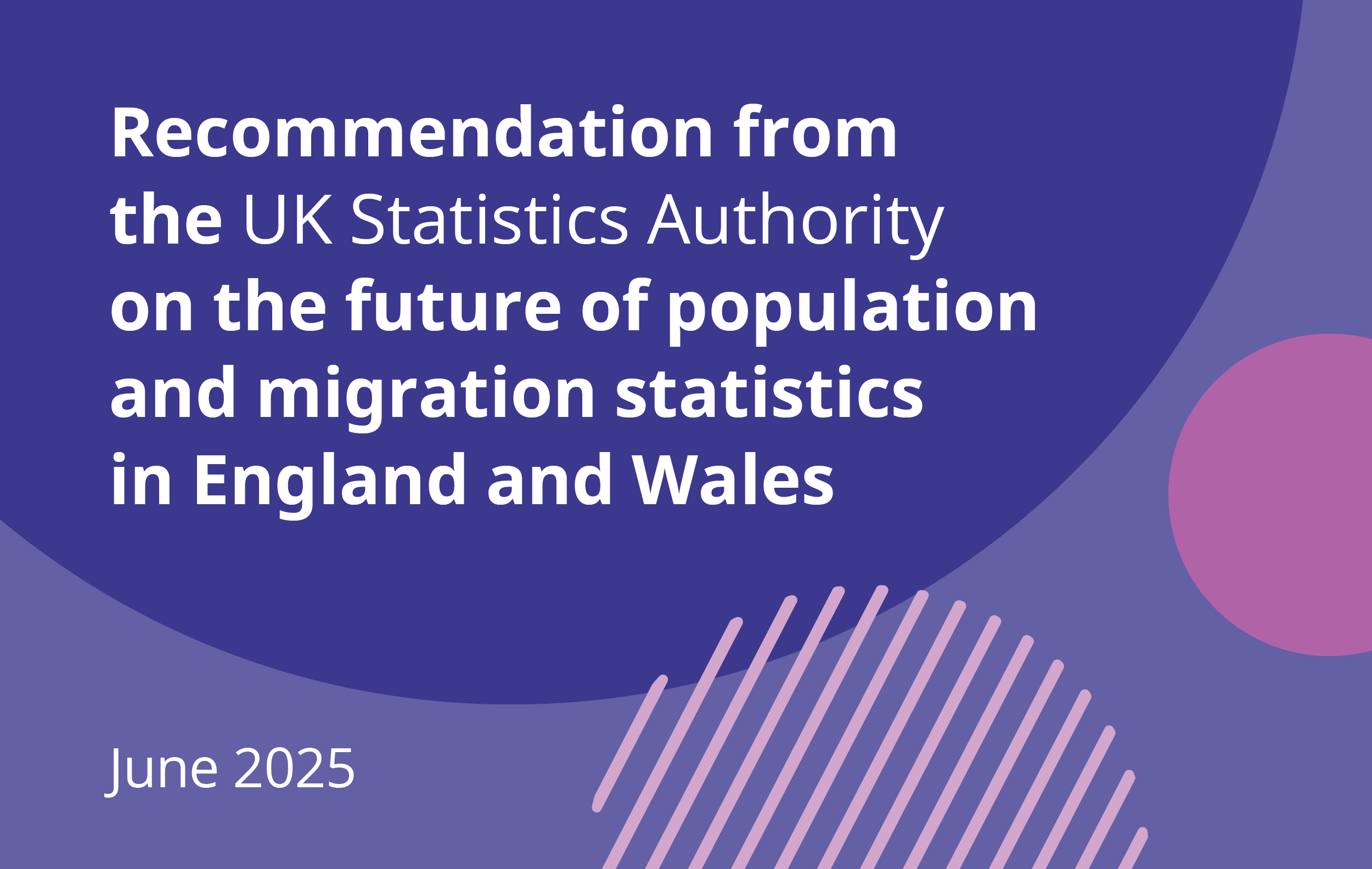Advice from the Methodological Assurance Review Panel
During the Office for National Statistics’ (ONS) research programme into the use of administrative data for population and migration statistics, it consulted the Methodological Assurance Review Panel (MARP). This section includes summaries of the main points and feedback provided by the MARP on the proposals in the consultation and the emerging recommendation.
The MARP was formed by the National Statistician to review and provide advice and assurance on methods used to produce official statistics. These align with the guidelines in the Code of Practice for Statistics on quality assurance through peer review.
Following a review of methods and research associated with Census 2021 and the future of population and migration statistics, the MARP produced in November 2023 initial advice for the National Statistician.
In March 2025, the MARP agreed the following statement for inclusion in this document, based on the emerging advice for the Authority from the National Statistician:
Back to top“The National Statistician’s recommendation envisages increasing reliance on administrative data for the future population and migration statistics system, in combination with a decennial census in 2031. For this combination to fulfil its potential, a fundamental condition is a secure and reliable supply of good quality administrative data to support ONS’s production of official statistics suitable both for its own purposes and for those of users. Therefore we strongly support the recommendation that the relevant governments (UK and devolved, as well as all relevant parts of the state) provide a commitment to deliver and develop this.
“The methodological proposals that MARP have reviewed to date follow sound methodological practice, and show promise and progress in the context of the proposed vision. Full details of the work reviewed are available on the MARP website. As we have advised, there are methodological issues still to resolve to deliver the vision, and indeed the experience gained as the process unfolds is likely to pose questions that will benefit from methodological consideration. We are confident that the ONS understands what is needed and will regard this as part of the task of developing the new approach in practice. But there remains much that needs to be done.
“An example where particular attention will be needed is the measurement of characteristics, as there will be differences in the definitions, categorical detail, and granularity available in the various administrative data sources, and these will be under the control of the individual data providers. Data collection mechanisms will change over time, and so there may be an effect on temporal consistency. Some characteristics will not appear in very much, if any, administrative data. Both for characteristics, and more generally, quality assessment of the administrative data sources will be needed to ensure that the data are fit for purpose. In addition, assurance will be needed that this quality will continue into the future. Appropriate coverage adjustments will also be necessary.
“Overall, the 2031 census will provide a very important checkpoint for the outputs based on administrative data in the interim, and it will make it possible to assess progress on the delivery of the necessary administrative data. This assessment will need to consider issues such as the temporal consistency and continued availability of administrative data, as well as whether new data sources coming on stream have been appropriately introduced. Nevertheless, we would advise the ONS to prepare contingency options against the risk that the supply, quality or accessibility of administrative data are not sufficient to maintain ONS’s standards including the level of public trust in official statistics. In addition, there should be continued work on the costs and benefits of the transformed approach.”

